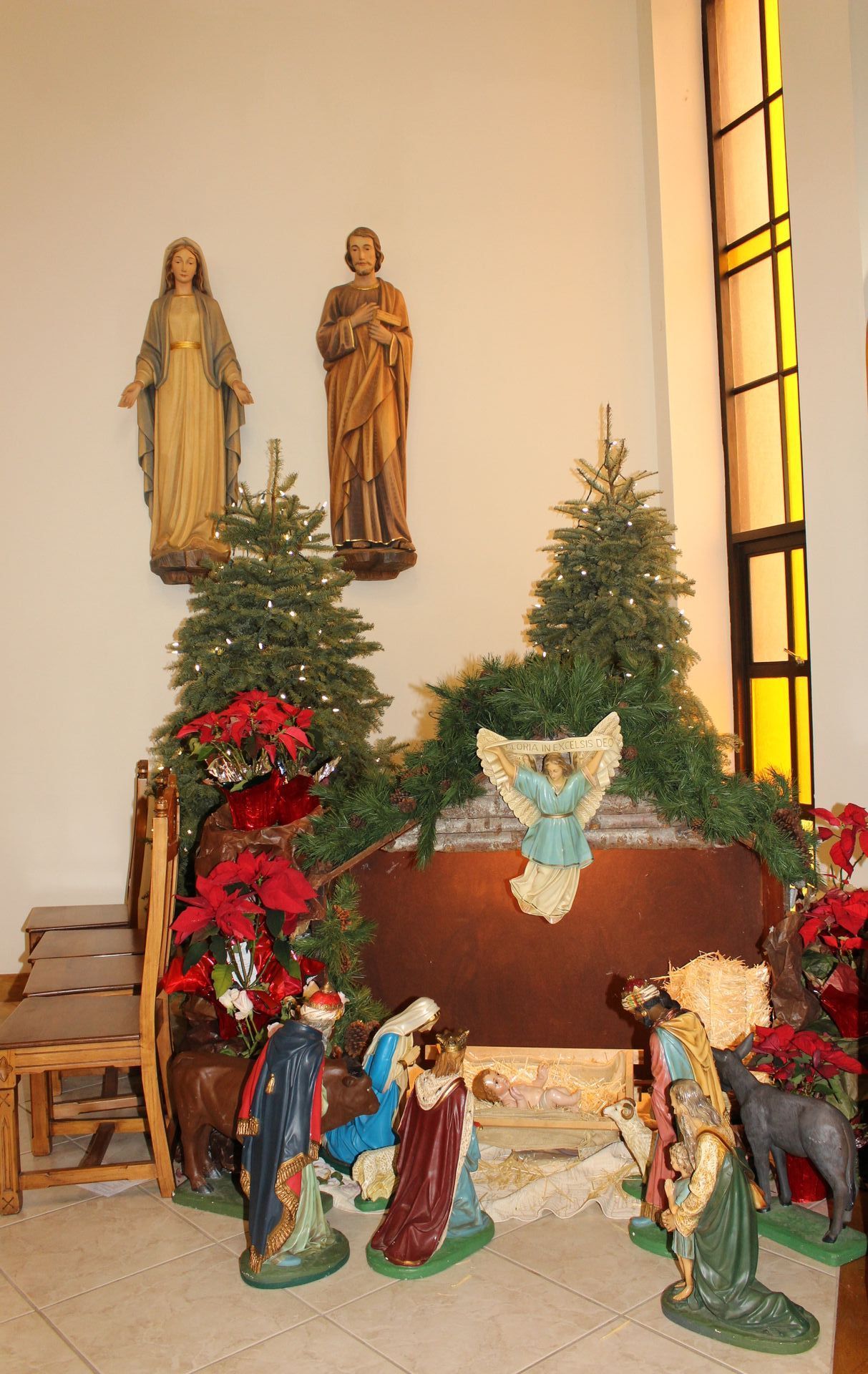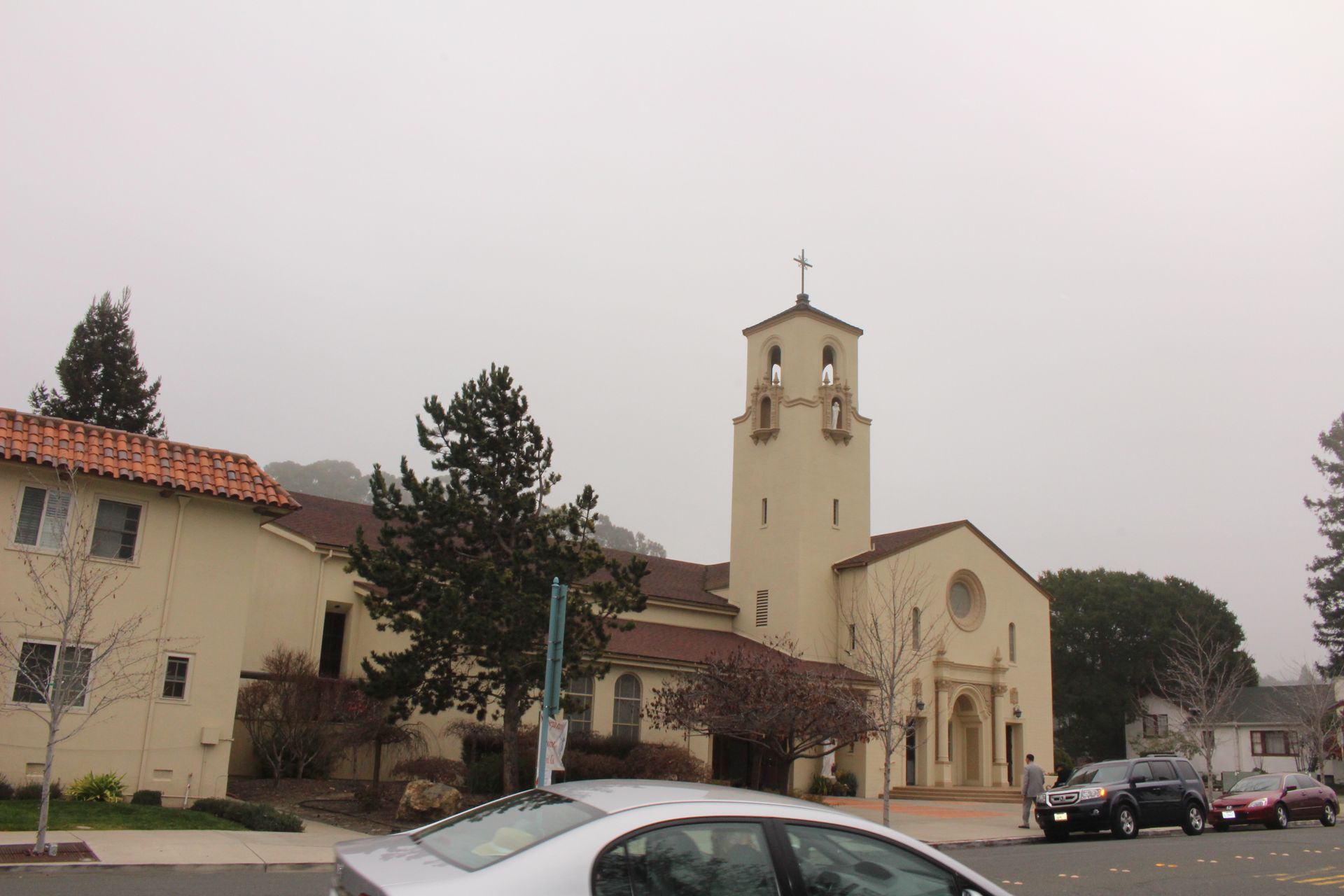Marriage
God created man and woman out of love and commanded them to imitate his love in their relations with each other. Man and woman were created for each other…Woman and man are equal in human dignity, and in marriage both are united in an unbreakable bond. (United States Catholic Catechism for Adults, Ch. 21, p. 279)

EVENINGS FOR THE ENGAGED
This program allows couples preparing for marriage to respond fully and personally to God's call to Catholic marriage. The program presents the beauty and dignity of the Sacrament of Matrimony as a sign of Christ's love for the Church. It stresses the importance of marriage as a covenant of love and fidelity for life according to the teachings of Christ and the Church. The program is conducted in the home of a trained lead couple and consists of six sessions, each dealing with a specific area of a couple's relationship. Volunteer couples are needed to lead the "Evenings for the Engaged" program. These couples should be married at least 5 years and be willing to meet and share with a group of 3-5 engaged couples for six weeks in their home. Training is provided via a course outline and an opportunity is provided to observe a group in process.
Meetings: To Be Announced
MARRIAGE
According to diocesan policy, arrangements for weddings must begin at least six months prior to the date of marriage. At least one party should be a participating member of St. Joseph Church. Couples must first contact a priest or deacon of the parish. Preparation includes meetings with the priest/deacon, and participation in either a weekend "Engaged Encounter" retreat or a series of "Evenings for the Engaged" (six evening sessions conducted by parishioners in their homes).
Following are additional points to consider:
- Catholics preparing for marriage must have a baptismal certificate issued from the parish of baptism no more than 6 months old. When requesting this certificate the Catholic should state, "Please make any notations for the purpose of marriage."
- Non-Catholic Christians should have a record of their baptism if possible.
- Couples will be asked to give a sworn statement regarding their intentions to the priest or deacon.
- Couples will need one witness apiece to make a similar sworn statement.
- Interfaith marriages require a dispensation from the Bishop after discussion of the faith in which any future children will be raised.
The sacrament of marriage is a visible sign of God’s love for the Church. When a man and a woman are married in the Church, they receive the grace needed for a lifelong bond of unity.
Marriage is a Covenant
The Sacrament of Marriage is a covenantal union in the image of the covenants between God and his people with Abraham and later with Moses at Mt. Sinai. This divine covenant can never be broken. In this way, marriage is a union that bonds spouses together during their entire lifetime.
The sacrament of Matrimony signifies the union of Christ and the Church. It gives spouses the grace to love each other with the love with which Christ has loved his Church; the grace of the sacrament thus perfects the human love of the spouses, strengthens their indissoluble unity, and sanctifies them on the way to eternal life. (CCC 1661)
The love in a married relationship is exemplified in the total gift of one’s self to another. It’s this self-giving and self-sacrificing love that we see in our other model of marriage, the relationship between Christ and the Church.
Marriage is based on the consent of the contracting parties, that is, on their will to give themselves, each to the other, mutually and definitively, in order to live a covenant of faithful and fruitful love. (CCC 1662)
The Church takes the lifelong nature of the Sacrament of Marriage seriously. The Church teaches that a break in this covenant teaches goes against the natural law of God:
The remarriage of persons divorced from a living, lawful spouse contravenes the plan and law of God as taught by Christ. They are not separated from the Church, but they cannot receive Eucharistic communion. They will lead Christian lives especially by educating their children in the faith. (CCC 1665)
Marriage Reflects the Holy Trinity
We believe that God exists in eternal communion. Together, Father, Son and Holy Spirit are united in one being with no beginning and no end. Human beings, likewise, were created by God in God’s image for the purpose of communion with another human being.
The Catechism of the Catholic Church states, “The Christian family is a communion of persons, a sign and image of the communion of the Father and the Son in the Holy Spirit” (CCC 2205). The Sacrament of Marriage is “unitive, indissoluble and calls us to be completely open to fertility.” Christian marriage at its finest is a reflection of God’s self-giving love expressed between the love of two people.

Archbishop Joseph E. Kurtz's Statement on US Supreme Court Decision
See a binder on various handouts of the Church's Teaching on Marriage.




